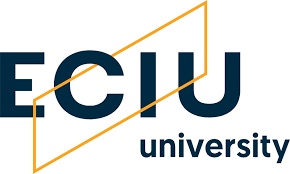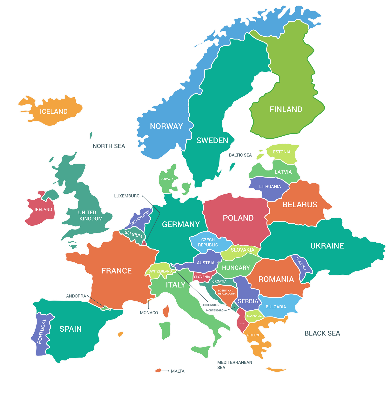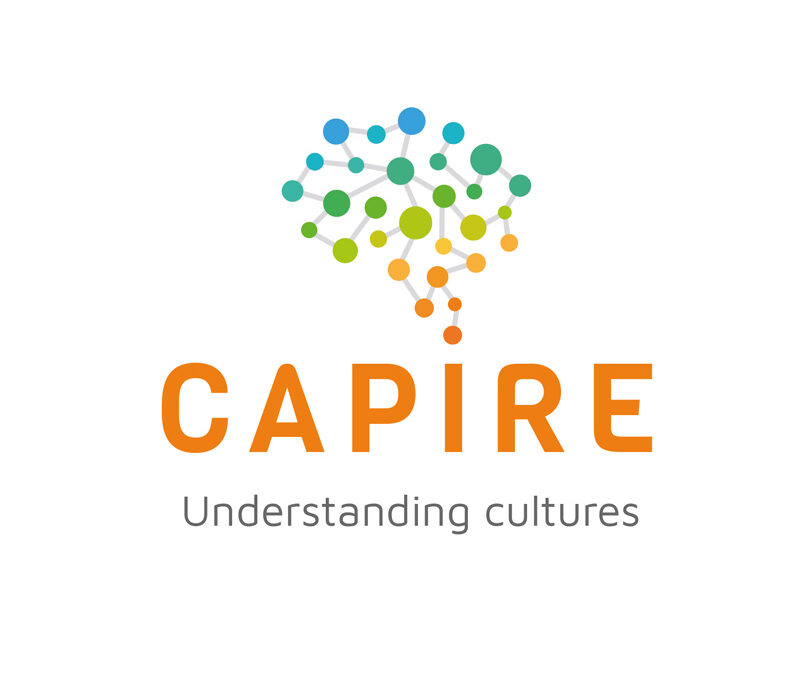
by Admin | May 15, 2022 | Project:
European Cross-cultural Experience
Introduction
Technical students are very likely going to work either with international colleagues or abroad in multinational companies. This will inevitably expose them to cultural differences and potential cultural clashes. Consequently, understanding the cultural logic that inspires the attitudes and behaviours of others is crucial and a first step to leave one’s cultural comfort zone and acknowledge that there are many other possible perspectives to interpret the world.
The Micro module
The Micro module ECCE is a 2 ECTS university course, first held in February-April 2022, and was open to all students of the universities of Twente, Aveiro, Toulouse (INSA) and Kaunas (KTU), members of the ECIU consortium of European universities. The main learning goals of this module are:
- Raise students’ awareness of deep-level cultural differences (and perhaps experiencing a light culture shock)
- Making students understand the cultural logic of other nations to cultivate openness towards, and eventually acceptance of, others’ behaviour
The module thus aims at widening students’ cultural horizons and challenging them to step outside their cultural comfort zone. No prior knowledge is required since this module is tailor to explore cultural differences from scratch. During the course the national cultures of four different European countries will be discussed: Netherlands, Portugal, France and Lithuania. From all four countries students participated. The course was given online.
The content
The micro module started with three general lectures, dealing with the basics of culture, Catholics and Protestants, and nobles and commoners. After which every two weeks a specific country was highlighted. In the first week, students had to interprete correctly four cases, regarding a puzzling situation for foreigners in the specific country. The cases were discussed groupwise and then explained in class. In the second week, a deepening lecture was given to elucidate more thoroughly the cultural logic of the specific country. After the inroductory lectures and each country section, the students had to deliver a group reflection paper. At the end of the course they had to deliver an individual paper on a cultural subject.
The teachers
Teachers of the 2023 course were:
Arnold Enklaar / Lara Carminati / Nienke Smit Organizational Behaviour, Change Management & Consultancy group (OBCC), IEBIS, BMA, University of Twente (Netherlands)
Bruno Costa / João Paulo Silvestre Department of languages and cultures, Universidade de Aveiro (Portugal)
Barbara Moore Foreign language department, Centre des Sciences Humaines, Institut National des Sciences appliquées (INSA) Toulouse (France)
Marija Vėžienė / Saulė Petronienė Centre of Foreign Languages, Faculty of Social Sciences, Arts and Humanities, Kauno technologijos universitetas (KTU) (Lithuania)
The micro-module was discontinued in 2024 because the funding from ECIU stopped and one partner could not find an adequate teacher. The micro-module might be revived in a different form in the future. For more info: director@crocsusinstitute.org

by Admin | May 15, 2022 | Project:
A research project mapping cultural differences within Europe
Introduction
By removing trade barriers and border controls among its members states and the introduction of uniform standards, the European Union has become one big common market. But Europe still has one disadvantage compared with other big economic blocks, like the U.S. and China: the linguistic and cultural differences between the constituent countries. Research on cultural differences within Europe is therefore extremely valuable, because it can help to improve business relations between various countries and in that way boost trade and industrial collaboration within the union.
Mapping national cultures
Describing national cultures may be compared with making a map of a foreign country. All maps have strong and weak points, are adequate for one specific use and less so for other applications. Very popular in international busienss administration courses are the ‘Dimension models’ that try to define cultural differences between countries using ‘universal’ categories for comparison. Though they give a quick and easy overview of the main differences between two countries, they do not offer detailed explanations on how to act effectively in a foreign country and why people over there behave in that particular way. Much richer in detail and explanations are the (both popular and more serious) impressionistic descriptions of national countries, but they are often not based on a systematic analysis and difficult to put into practice. Our cultural map, being based on systematic research, will give detailed and practical information for foreigners, both describing how people behave on the work floor in the specific country and why.
Research method
Our research is based on a Grounded Interpretive Model (GIM). It is interpretive, as it makes use of a qualitative approach, aiming to produce a thick description of the contrasting national cultures that are studied (Geertz 1973). It describes in an anthropological way the typical behaviours in each of the two cultures, and tries to interpret them, identifying the cultural logic behind these typical behaviours (Iribarne 1989; 2002). It is grounded, as it makes use of Critical Incident Technique to identify cultural standards (typical behaviours) of each culture by a systematic analysis of critical incidents that are reported by nationals of one country working in another country, vice versa. Thus the research is focused on situations of amazement, friction, or embarassment, because these reveal differences in cultural behaviour and logic (Thomas 2010).
The project
Since the kick-off in 2020 several pilot studies have been started. A group of students of the University of Twente are writing their Master theses on the cultural differences which are experienced by European professionals working in other European countries than their home country. Several studies are now under way or have already been finalised: two studies on German-Dutch differences (as seen from the German perspective), a study on Dutch-German differences (from a Dutch perspective); two studies on Dutch-Spanish differences; and studies on Dutch-Polish, Dutch-French, Dutch-Italian, Dutch-English, Dutch-Belgian cultural differences (as seen from a Dutch perspective). In collaboration with the Nicolaus Copernicus University in Torún a research on Polish-Dutch cultural differences has been carried out.
We expect to engage in many more collaborations and studies in the future, and other European universities and their students are invited to join the project. Foreign students who are willing to write their Master thesis on this subject are provided with supplementary supervision from our side. The ideal situation is that the two students working on the same binational comparison from opposite perspectives help each each other in understanding the cultural logic leading to typical behaviours on both sides.
References:
Geertz, C. (1973). The interpretation of culture. New York: Basic Books
Iribarne, P.d’ (1989). La logique de l’honneur. Gestion d’entreprises et traditions nationales. Paris:Seuil.
Iribarne, P. d’ et al. (2002). Cultures et mondialisation. Gérer par-delà des frontières. Paris: Seuil
Thomas, A. et al. (2010). Handbook of intercultural communication and collaboration. Göttingen: Vandenhoeck & Ruprecht.

by Admin | Mar 16, 2022 | Project:
Cultural Adjustment Project for Improving Relations in Europe
Erasmus+ Grant (2022-2025)
Cooperation partnerships in higher education (KA220-HED)
Granted: 5-9-2022
Project idea
The idea is to create an online learning platform which offers students, businessmen and private persons a training tool, a Culture Simulator, for dealing with intercultural situations on the work floor. It consists of real-life cases, which have to be correctly interpreted by the users of the platform. For this project a great many expats (persons living in other European countries) will be interviewed and their experiences will be used to create the cases. The many data generated by this project will also be used for the research project ‘One market, many cultures’.
Summarising, this project and the tool that will be created aims at helping Europeans to better understand the cultural differences between them, leading to a more effective collaboration. That is why the project has the acronym CAPIRE, which in Italian means ‘to understand’.
Product
The Culture Simulator (or: Culture Assimilator) is an intercultural training tool that was created in the U.S. in the 1970’s (Fiedler, Mitchell, & Triandis, 1971) and enjoyed popularity in the 1980’s and 1990’s. In the 2000’s it was elaborated by the German scholar Alexander Thomas (2010), who published a series of books with Culture Simulators for various countries within and outside Europe. Culture Simulators are especially used to train expats to adjust to the work floor in a foreign country.
The Culture Simulator consists of the following elements: a situation, interpretations, evaluation of the interpretations and further explanation of cultural background. It starts with presenting a situation that is puzzling or odd for foreigners in country X. The reader has to choose from four different interpretations of the situation. Next, all interpretations are evaluated, which one is the most adequate and why. Finally, a more profound explanation is given of the cultural values of country X that are involved. By going through a number of such situations, the reader is sensitized to cultural differences and helped in understanding them. After having solved a series of 20 cases the Simulator will give a score, based on how quickly the right interpretations were found.
Here a very simple example of a Culture Simulator is given: Dutch Culture Simulator
Partners
CAPIRE is a project of five different European universities: Universiteit Twente (Netherlands, Lead partner), Uniwersytet Mikolaja Kopernika w Toruniu (Poland), Université Gustave Eiffel (France), Università degli studi di Milano-Bicocca (Italy), Universität Osnabrück (Germany).
More detailed info on the project: project website



